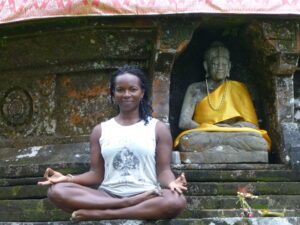 Insomnia, or the inability to get a good night’s rest, is an extremely common affliction. Chronic, long-term insomnia affects approximately one in seven adults, and one in four women suffer from it. It is also more common in older women.
Insomnia, or the inability to get a good night’s rest, is an extremely common affliction. Chronic, long-term insomnia affects approximately one in seven adults, and one in four women suffer from it. It is also more common in older women.
If you are one of those who struggle to get enough sleep on a regular basis, it may be time to consider Yoga Therapy and Meditation for improved sleep.
Below, we take a look at how yoga therapy can help to control the symptoms of insomnia.
Yoga Reduces Stress and Anxiety
One of the main reasons why a person may suffer from insomnia is the fact that they have high levels of stress and anxiety in their daily life. They may struggle to ‘switch off’ their thoughts, and will often spend their nights worrying, plotting and planning. The good news is that not only does Yoga and Meditation aid in reducing stress and anxiety, but it also teaches you the art of emptying the mind of all thoughts.
It Relaxes the Body
A tense body often leads to a tense mind. Yoga and meditation help to relax your muscles and relieve the tension, which can also make it easier for you to drift off calmly to sleep at night.
It Encourages Tiredness
Yoga is an amazing workout – it is not just about sitting cross-legged and breathing deeply. Yoga postures are challenging and take plenty of strength and endurance to master. The end result is a relaxed, tired body that should begin to welcome sleep a lot more easily when it is time to get some well-earned rest.
There is no denying the power of Yoga Therapy and Meditation benefits when it comes to insomnia. For more information about meditation for sleep and to start your yoga journey, contact Janet Haughton Quarshie of Atha Jiva today!
